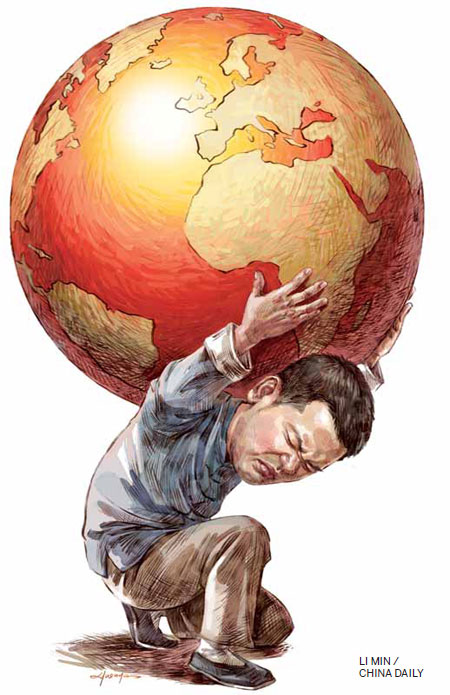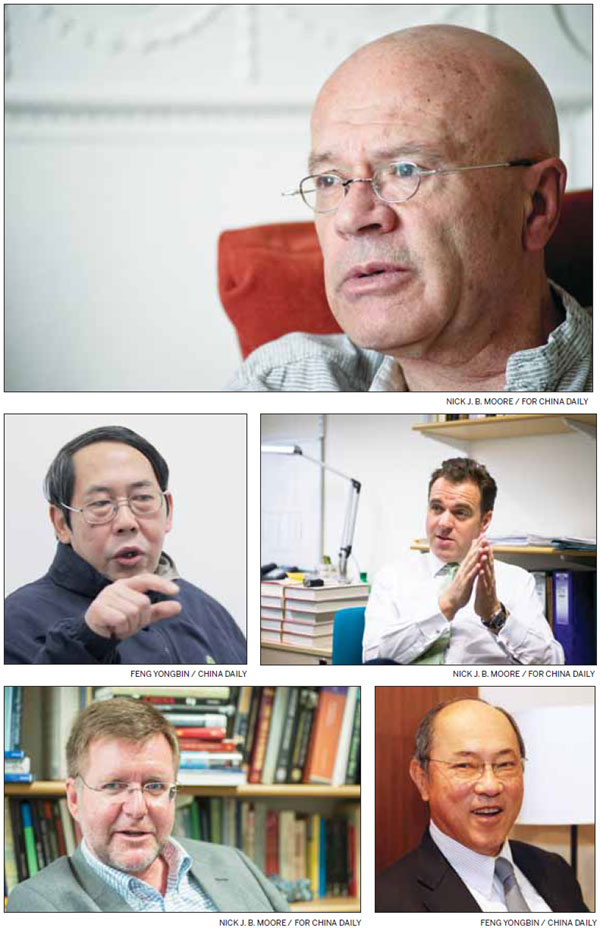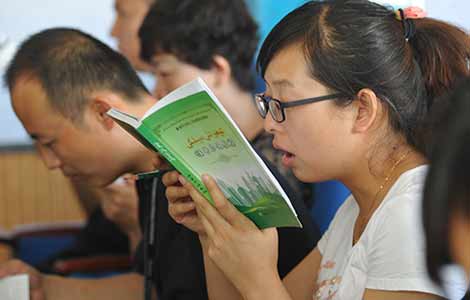Power points
Updated: 2013-08-09 09:19
By Andrew Moody (China Daily)
|
|||||||||||

Sinologist's views unleash debate about China's place in the world
Is China emerging as a potential global superpower or just a partial one? The leading American Sinologist David Shambaugh makes the case in his new book, China Goes Global: The Partial Power, that despite being the world's second-largest economy, the country has a long way to go before it begins to shape the world in its own image.
Even in the economic sphere, where China arguably had its most significant influence - accounting for 40 percent of global growth over the past two decades as well as being the largest exporter and holder of foreign exchange reserves - its global reach is overstated, according to Shambaugh.
The American academic argues that while the image is of Chinese companies taking over businesses throughout Europe and the United States, China has only the fifth largest overseas direct investment in the world, behind even the Netherlands and a fifth of the size of that of the United States.
He further points out that while China may have 71 companies in the Fortune 500 only three of them are truly multinational, gaining more than 50 percent of their revenues from overseas.
China, according to the professor of political science and international affairs at George Washington University, is also a "cautious diplomatic actor", using diplomacy mainly as a tool to serve its own economic modernization and national security and not for any wider goals.
"China has a very long way to go before it becomes - if it ever becomes - a true global power. And it will never 'rule the world'," he argues.
The book, coming from one of the West's leading Sinologists, is already fueling a debate about China's current and future role in the world.
Some in China insist it has never been China's intention to be a world superpower and that its sudden economic advancement has put it in a position of having to have a global role it never really sought in the first place.
Many believe Shambaugh also fails to give sufficient credit for the long and difficult journey China has taken since reform and opening-up began under Deng Xiaoping in the late 1970s.
The American Sinologist seems to be taking the polar opposite stance of the British academic Martin Jacques, who in his international bestseller When China Rules the World postulated that in the 21st century it might be China that defines modernity and not the United States.
Speaking from Kuala Lumpur, Jacques says Shambaugh's book is more about where China is now than where it is heading.
"It is a still photo. As a snapshot of the present he has got a lot to say and he has some very reasonable arguments but he underplays the scale of China's achievement.
"Where he really does underestimate China's strength is in the whole economic field. China is an absolutely crucial player and has become an important source of demand in the world not just for commodities but as a major consumer market in its own right.
"He talks of the number of Chinese companies in the Fortune 500 but if you look at how many companies there used to be in the list it has been such a huge change."
Paul M. Cheng, the Hong Kong politician and businessman, speaking from Hawaii, also believes Shambaugh has taken a snapshot and underestimates the global impact Chinese companies are likely to have over the next ten to 15 years.
The author of On Equal Terms: Redefining China's Relationship with America and the West, another book that examined China's role in the world, says China's fast developing private equity market in Hong Kong and Shanghai will give Chinese companies huge financial firepower to make acquisitions around the world.
They will then be able to acquire the innovation capability and global brands that Shambaugh says the China economy now lacks.
"It is a fast track way for Chinese companies to do this. You can criticize them for not being able to do it themselves but from a business point of view it really makes no difference," he says
Cheng says Shambaugh is right to highlight that, according to the WTO, 93.6 percent of China's exports are still manufactured, often low-end, goods but fails to appreciate how much money it has made doing this.
"I know where he is coming from. A lot of Chinese companies just make OEM products for other companies and are not very innovative in their own right," he says.
"That is fair comment but they are making a lot of money making these products and all this wealth they have accumulated will take them to the next stage."
Shi Yinhong, professor of international relations and director of the Center for American Studies at Renmin University and one of China's foremost foreign policy experts, says that many of the issues Shambaugh raises are central to the thinking of the Chinese government.
"I think much of this is fully compatible with Chinese leaders own self-assessment. China has had a dramatic rise but there are a lot of weak spots, particularly internationally and also culturally. I think generally speaking it is a correct assessment that China is a partial power," he says.
Shi, who describes Shambaugh as his "good American friend" and with whom he has shared a number of conference platforms, says that with its rapid emergence, China still has work to do in building relations with the rest of the world, particularly its neighbors.
|
Clockwise from top: Martin Jacques, author of When China Rules The World; Niall Ferguson, professor of history at Harvard University; Paul M. Cheng, author of On Equal Terms: Redefining China's Relationship with America and the West; Odd Arne Westad, professor of international history at the London School of Economics; Shi Yinhong, professor of international relations and director of the Center for American Studies at Renmin University of China. |
Today's Top News
New green policy gives industries a big boost
Northeast China braces for major floods
Launches highlight India's ambitions
Chinese put on alert in Afghanistan
Social media counters papers
China to boost green industries
Go-between helped to cement key tire deal
Japan to carry out self-defense
Hot Topics
Lunar probe , China growth forecasts, Emission rules get tougher, China seen through 'colored lens', International board,
Editor's Picks

|

|

|

|

|

|






